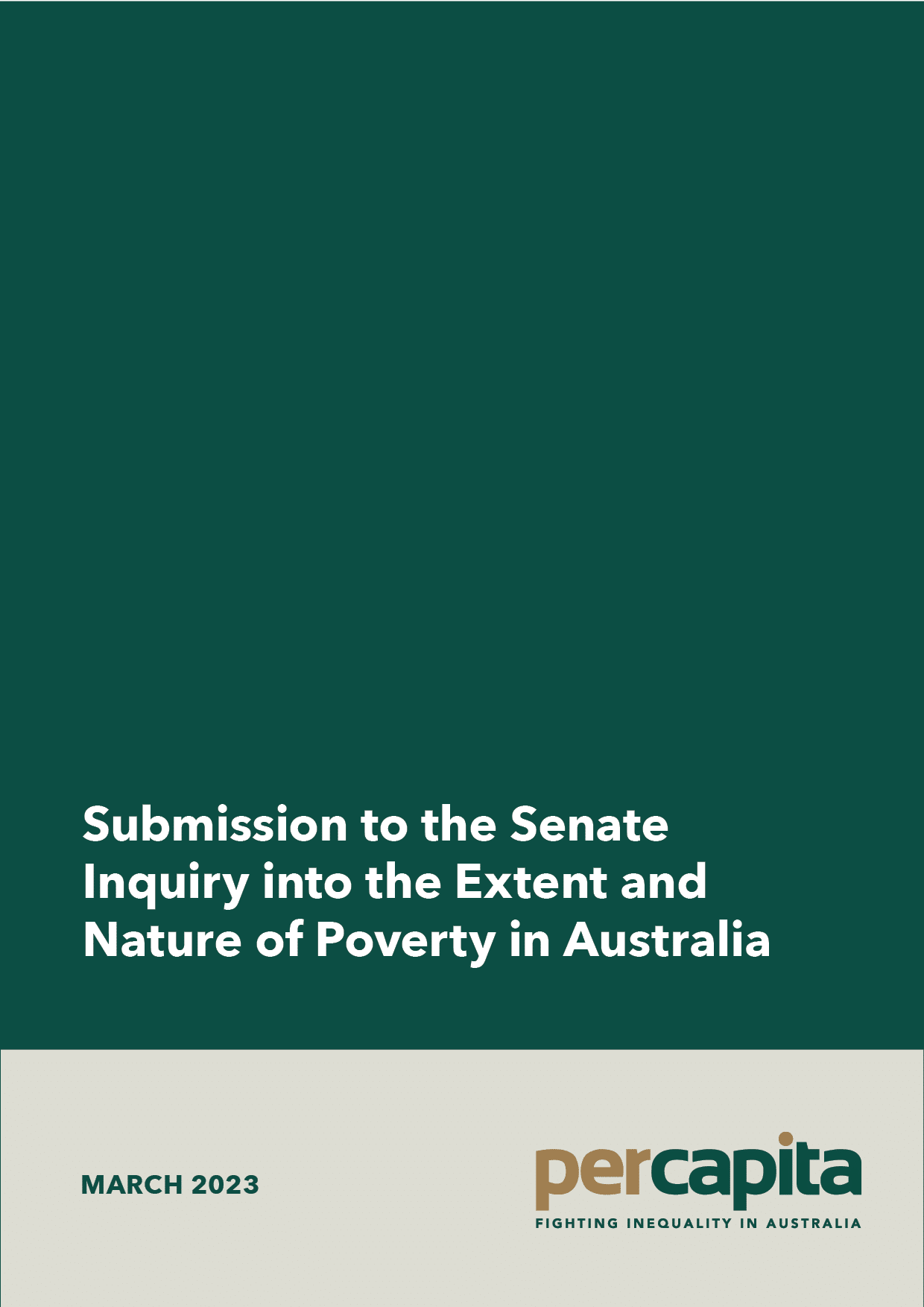This submission looks at the need to both define and analyse the social groups especially at risk of poverty. Focusing on different ways to see, count and define poverty is a way to highlight the intersecting drivers of poverty that compound disadvantage, for example, in the labour market, or in access to housing. It is also a way to reveal the inherent assumptions about the causes of poverty, such as the need to ‘activate’ unemployed people to do more to find and take up work, or risk losing their income support payments. These kinds of approaches get in the way of more diverse and effective policy responses.
The scope of potential reform to reduce poverty lies within an immense range of systems. These include systems for tax, housing, superannuation, income support, education and training, health care, employment services, and – not least – industrial relations. With so much at stake, there needs to be agreement about the quality and authority of the data and analysis about how poverty can be defined, which groups are affected by it, and what drives and compounds it. Without agreement about poverty definitions, and the ability to obtain current and relevant comparative data, any consensus about reform options will be undermined from the start.
Poverty is best understood as neither a personal failing nor as an historical accident. Rather, it is the consequence of power relations, such as those between working people and their employers, or between citizens and the state. As we will argue, the ability to recognise and respond to those power relations is obscured by the central idea and narrative of capitalism: that people make their own fortunes, through study, work, and saving, or are responsible for their own poor choices. In recent decades, that narrative has co-existed with the withdrawal of the state from social responsibility for service provision and welfare, alongside the incremental incursion of the market into the public sphere, the commodification of care and the financialisation of housing.
Public interest in and concern about poverty is rising, as more Australians become at risk of falling into it. Per Capita also sees growing evidence of public belief that government not only can play a role but increasingly has the mandate to do so. Attention is turning to flatlined wages, declining housing affordability, and rising costs of living, including rising costs of healthcare and even education in the public system that is meant to be free. Climate-related disasters caused by flood and fire, and the shortages and rising costs linked to by broken supply chains caused by COVID and tensions with China, are all shaping a growing view that the time to act against worsening poverty and inequality is now.
Such developments place a disproportionate burden on low-income people. They also illustrate how investors can generate more wealth from shifts and changes in both the domestic and global markets. Recognising that poverty and wealth are two sides of the same coin raises questions about unearned wealth, and what kinds of government transfers or tax breaks are warranted.
The first part of our submission examines poverty through three different lenses to identify drivers of poverty risk and poverty traps.
The second part of this submission critiques the view enshrined in neoliberal ideology that poverty is the fault of the people forced to experience it.
We end this section by calling on the Federal Government to raise public consciousness of poverty and the need for a stronger public policy response by establishing a new Poverty Commission of Inquiry into Poverty, along the lines of the Henderson Commission.

